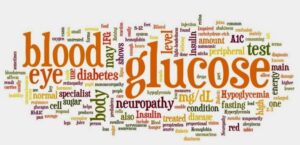Diabetes also known as Diabetes Mellitus (DM). There are two types TYPE 1 and TYPE 2. TYPE 1 is an autoimmune destruction of beta cells of pancreas and therefore decreased production of insulin. TYPE 2 is resistance against insulin and increased production of glucagon.
Well you need not go into deep medical knowledge but you should know the following.
How can you say if a person is having diabetes?
well if you suspect a person of diabetes then you must look for the following signs
- He must be going to the washroom at least 10 times a day
- He will always be very thirsty and will be drinking a lot of water
- He will be very hungry mostly craving for sweet stuff
- His wounds will heal slowly
- He will be lethargic and irritative
- He might loose/gain weight
- Having vertigo/dizziness
What is normal blood glucose level?
A range of 80 mg/dl to 120mg/dl of blood sugar level is considered normal. Above 140 mg/dl must be taken seriously and should be monitored 3 times before deciding to start upon medication if no other symptoms accompany.
You consulting physician will prescribe you antihyperglycemic medicines or insulin injections according to your blood sugar level, which is to be continued for a very long duration.
Medicine or Insulin?
Definitely Insulin is the answer of choice but if Blood Sugar level has risen mildly or patient prefers taking medicine then oral drugs are prescribed. Insulin injections now available in the form of Insulin Pens which are painless and easy to use.
What precautions must be exercised?
1. Avoid all kind of sugary diet including sweets, sugar, syrups, soft-drinks, sweet fruits like mango, banana etc., rice, and products containing sugar in form of glucose, fructose, maltose, lactose, sucrose etc.
2. Always have some food before taking antihyperglycemic drugs as they lower the blood sugar level considerably to allow the patient to go into a hypoglycemic SHOCK. If so happens by chance then one should always carry glucose, toffees or ripe grape (kismis) along with him. These are direct forms of sugar and body does not need to break them down to absorb thus acts quickly preventing the SHOCK state.
3.Avoid skipping/forgetting medicine dose more than a day.
4. Diabetes usually causes end organ damage and therefore must be taken very seriously. Drinking a lot of water helps regulating the renal and liver metabolism. Also wear cover shoes/slippers to prevent accidental wounds which the patient is usually unaware due to decreased senses caused by diabetes. Such wounds eventually heal slowly due to raised sugar levels and ends up into a gangrenous foot. Gangrenous foot usually requires cutting of the foot or leg below knee.
How regularly should I visit my doctor?
It depends usually on the doctor or if the symptoms are not under controll even after taking insulin/medicine.
1 monthly visit is recomemded along with weekly self monitoring of blood sugar level at home. Various Gluco-Monitors are available in the market which are easy to use and very much accurate.
Along with this a diabetic patient must get an eye check up every 6 monthly as they are affected the most by this disease.
Can i consume Alcohol/Smoking?
No, it is strictly prohibited. A person on oral antihyperglycemic drugs must avoid drinking and smoking as they will affect adversely to the action of the drugs/insulin and also might cause deterioration in the patients condition.
 |
| Gluco Monitor Kit |
Related Topics
Read more on
1. Diabetic Foot
2. Insulin Pen and how safe is it
3. OneTouch Glucose Monitor – Best leading brand for home monitoring
For any further query on Diabetes and related issues feel free to ask me at drsarthak88@gmail.com






